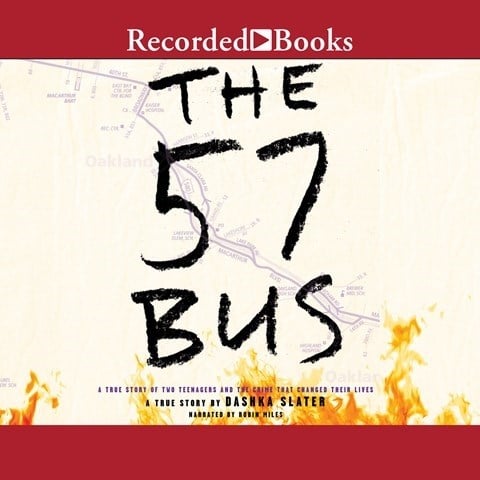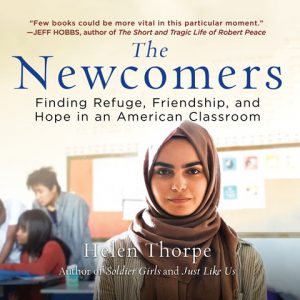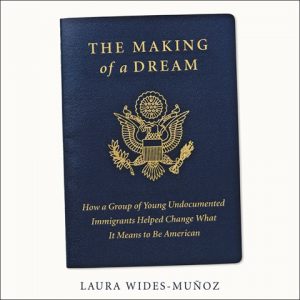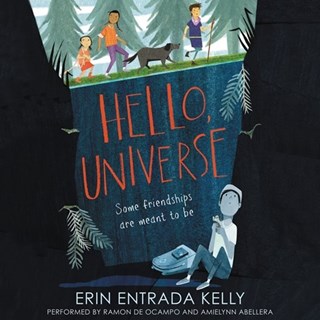In my work with library staff working to improve their reference interviewing skills, I regularly need to provide coaching to those who persistently (and inadvertently) shut down clients by offering them either/or options instead of open-ended questions. This binary view of possibilities is endemic in our culture as well: The person before us can identify themselves as this or that, black or white, straight or gay, right or wrong. In fact, identities match spectra, rather than simply opposite points, and allowing ourselves the opportunity to become aware of realities that go beyond what we already imagine as likely, or even possible, enlarges our own world as well as admitting more variety into it.
 An increasing number of authors address this concern, and many of these books are coming to audio format with successful performances. To be successful in this regard, narrators must be sensitive to the fact that humanity is much broader than a binary, and win listeners to greater possibilities through careful interpretation in their performances.
An increasing number of authors address this concern, and many of these books are coming to audio format with successful performances. To be successful in this regard, narrators must be sensitive to the fact that humanity is much broader than a binary, and win listeners to greater possibilities through careful interpretation in their performances.
Among recent audiobooks that demonstrate such wider realities, Robin Miles’s reading of journalist Dashka Slater’s THE 57 BUS: A True Story of Two Teenagers and the Crime that Changed Their Lives is a fine example. There are surface-level elements in this account that clearly spotlight neither/nor, such as the crime victim’s identity as genderqueer. There are more subtle aspects, too, including the true reason behind the perpetrator becoming presumptively identified with a hate crime when, in fact, hate did not inform his motivation. Miles, for her part, does not add a fictional layer to Slater’s carefully balanced reporting by presuming character voices. Instead, she allows each and all sides to be heard unweighted, leaving the listener to consider all the mitigating points along the spectrum of gender identity, class, and racial histories.
Many native-born Americans believe that immigrants by definition speak English with accents and/or don’t understand the English they hear well. Two recent audiobooks that strip away such presumptions are Kate Handford’s performance of THE NEWCOMERS: Finding Refuge, Friendship, and Hope in an American Classroom, by Helen Thorpe, and THE MAKING OF A DREAM: How a Group of Young Undocumented Immigrants Helped Change What It Means to Be an American, written by Laura Wides-Muñoz and performed by Almarie Guerra. While both of these authors make deep inquiries into the lives and concerns of multiple persons—making the latter almost informants rather than formal interview subjects—both narrators allow all those quoted to speak without accent or other auditory marker of “foreign English speaker.” This refusal to make the speakers “Other” reinforces for listeners that the accounts should be heard for their observations and feelings, both of which are accessible to anyone regardless of background, rather than as instances of foreignness.
 Fiction, too, can and does offer titles that break away from binary supposition to present characters with more realistic identities built from intersecting identifications. Misa Sugiura’s teen novel IT’S NOT LIKE IT’S A SECRET, read by Emily Woo Zeller, relates the experiences of a high school girl with questions about her sexual orientation, her racial status, and her parents’ relationship. None of these concerns is a simple this or that; instead, and more realistically, both Sigiura and Zeller create an individual whose identity has been influenced by intersectionality and is emerging as complex.
Fiction, too, can and does offer titles that break away from binary supposition to present characters with more realistic identities built from intersecting identifications. Misa Sugiura’s teen novel IT’S NOT LIKE IT’S A SECRET, read by Emily Woo Zeller, relates the experiences of a high school girl with questions about her sexual orientation, her racial status, and her parents’ relationship. None of these concerns is a simple this or that; instead, and more realistically, both Sigiura and Zeller create an individual whose identity has been influenced by intersectionality and is emerging as complex.
Just as exposure to stories and accounts builds empathy in readers and listeners, indulging in narratives that crash head on and disrupt binary presumptions gives us access to a richer worldview. There are so many possibilities for personifying the human; why reduce them to any narrow binary restriction?








